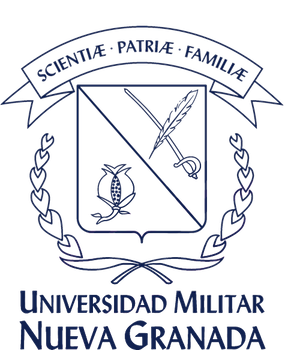El Banco Mundial y los Derechos Humanos: un repaso crítico a los argumentos jurídico-doctrinales
Resumen
Este artículo de reflexión tiene por objeto identificar y valorar críticamente varios de los argumentos jurídico doctrinales que sostienen la obligación jurídica por parte del Banco Mundial de respetar normas internacionales de derechos humanos. Fundado en una metodología cualitativa y centrada en la dogmática del derecho internacional público, sostiene que la vinculación a las Naciones Unidas mediante acuerdo previo, los compromisos internacionales de los estados miembros del organismo y el carácter consuetudinario y/o de principio general del derecho, de esta normatividad, son los tres argumentos centrales de dicha obligatoriedad. Los mismos, sin embargo, están afectados por su generalidad, ambigüedad en cuanto a la concreción de los compromisos y no aceptación por el mencionado organismo internacional. En tal sentido, el texto propone la necesidad de promover la suscripción de los tratados de derechos humanos por parte de los organismos internacionales, identificando de paso algunos de los antecedentes ya existentes al respecto.
Descargas
Lenguajes:
esReferencias bibliográficas
Agusti-Panareda, J. (2008). Transforming Weakness into Virtue-A Dialogue and Context Based Approach to Human Rights at the World Bank. Hum. Rts. & Globalization L. Rev., 2, 23.
Adepoju, A. (1993). The impact of structural adjustment on the population of Africa: the implications for education health and employment.Nueva York. UNFPA.
Brown, B. S. (1992). The United States and the politicization of the World Bank: issues of international law and policy. Routledge.
Burgos J. G. (2009). Estado de derecho y globalización: el papel del Banco Mundial y las reformas institucionales en América Latina. Universidad Nacional de Colombia, Facultad de Derecho, Ciencias Políticas y Sociales, Departamento de Ciencias Políticas.
Ciorciari, J. D. (2000). Lawful Scope of Human Rights Criteria in World Bank Credit Decisions: An Interpretive Analysis of the IBRD and IDA Articles of Agreement, The. Cornell Int'l LJ, 33, 331.
Clark, D. L. (2002). World Bank and Human Rights: The Need for Greater Accountability, The. Harv. Hum. Rts. J., 15, 205.
Clapham, A. (2006). Human right obligations of non-state actors. Londres: Oxford University Press. http://dx.doi.org/10.1093/acprof:oso/9780199288465.001.0001
De Feyter, K. (2004). The international financial institutions and human rights: Law and practice. Human Rights Review, 6(1), 56-90. http://dx.doi.org/10.1007/s12142-004-1036-y
Dias, L. A. (2013). La tendencia hacia un rol fortalecido de las normas de" Jus Cogens" en el Derecho Internacional: caminos, riesgos y utopías. Revista Electrónica del Instituto de Investigaciones Jurídicas y Sociales Ambrosio Lucas Gioja, 7(10), 45-70.
Espada, C. G. (1995). Derecho internacional público. Madrid:Trotta.
Ghazi, B. (2005). The IMF, the World Bank group and the question of human rights. Nueva York: Transnational Publishers.
Herbertson, K., Thompson, K., & Goodland, R. J. (2010). A roadmap for integrating human rights into the World Bank Group. Washington, DC: World Resources Institute.
Horta, K. (2002). Rhetoric and Reality: Human Rights and the World Bank.Harv. Hum. Rts. J., 15, 227.
Larsen, K. M. (2008). Attribution of conduct in peace operations: the 'Ultimate Authority and Control'test. European Journal of International Law, 19(3), 509-531. http://dx.doi.org/10.1093/ejil/chn029
Lindros, A. Books Reviews. EJIL 17 (2006), 1033-1047. http://dx.doi.org/10.1093/ejil/chl040
Martín, J. M. C. (2008). Las organizaciones internacionales: codificación y desarrollo progresivo de su responsabilidad internacional. Instituto Andaluz de Administración Pública.
McBeth, A. (2008). Right by Any Other Name: The Evasive Engagement of International Financial Institutions with Human Rights, A. Geo. Wash. Int'l L. Rev., 40, 1101.
McCorquodale, R. (2009). International Organizations and international human rights law: One giant leap for humankind. En International Law and Power. Perspectives on Legal Order and Justice, editores Kayan Kaikoban y Michael Bohlander,141-162. Leiden: Martinus Nijhoff Publishers. http://dx.doi.org/10.1163/ej.9789004175877.i-594.39
Mehta, P. (2004). Internally Displaced Persons and the Sardar Sarovar Project: A Case for Rehabilitative Reform in Rural India. Am. U. Int'l L. Rev., 20, 613.
Menéndez, F. M. M. (1999). Derecho internacional público: parte general. Madrid, Trotta.
Rey, A. (2006). Una aproximación a la responsabilidad internacional de las organizaciones internacionales. Valencia: Tirant lo Blanch.
Ryngaert, C., & Buchanan, H. (2011). Member State responsibility for the acts of international organizations. Utrecht L. Rev., 7, 131 http://dx.doi.org/10.18352/ulr.151
Rosas, D. E. (2007). Batallas en el sistema financiero internacional: Críticas y réplicas contemporáneas en torno al Fondo Monetario Internacional y al Banco Mundial. Boletín Mexicano de Derecho Comparado, (119), 467-529.
Shihata, I. F. (1988). World Bank and Human Rights: An Analysis of the Legal Issues and the Record of Achievements, The. Denv. J. Int'l L. & Pol'y, 17, 39.
Skogly, S. (2001). Human Rights Obligations of the World Bank and the IMF. Cavendish Publishing.
Suzuki, E., & Nanwani, S. (2005). Responsibility of international organizations: the accountability mechanisms of multilateral development banks. Mich. J. Int'l L., 27, 177.
Toussaint, E. (2007). Banco Mundial: el golpe de estado permanente: la agenda oculta del Consenso de Washington. Editorial El Viejo Topo.
World Bank and Organisation for Economic Co-operation and Development (OECD) (2013) Integrating Human Rights into Development: Donor Approaches, Experiences and Challenges, 2nd ed, Washington DC: World Bank.
Wahi, N. (2005). Human rights accountability of the IMF and the World Bank: A critique of existing mechanisms and articulation of a theory of horizontal accountability. UC Davis J. Int'l L. & Pol'y, 12, 331.
Wouters, J., Brems, E., Smis, S., & Schmitt, P. (2010). Accountability for Human Rights Violations by International Organisations. Intersentia.
Young, A. I. (2012). Deconstructing International Organization Immunity. Geo. J. Int'l L., 44, 311. REFERENCIAS ELECTRÓNICAS
Banco de la República de Colombia (2014). Deuda Externa de Colombia. Recuperado el 15 de Julio de 2014, http://www.banrep.gov.co/
Bank Information Center (2012). Human Rights and the World Bank: Case Studies from IDA Countries. Recuperado el 10 de Julio de 2014, http://www.inclusivedevelopment.net/wpcontent/uploads/2012/02/IDA-Case-Study-Book-FINAL_10-4-13.pdf
Banco Mundial (2013). Review and Update of the World Bank Safeguard Policies. Recuperado el 10 de Julio de 2014, http://consultations.worldbank.org/Data/hub/files/consultation-template/review-and-update-world-bank-safeguard-policies/en/documents/safeguardsreviewstatusreportboardbriefingjuly232013.pdf
Brodnig, G. (2001). The World Bank and Human Rights: Mission Impossible?.Carr Center for Human Rights Policy Working, Paper T-01-05, Recuperado el 5 de mayo de 2014. http://fletcher.tufts.edu/praxis/xvii/Brodnig.pdf.
Consejo de Europa. Asamblea Parlamentaria (2013). Accountability of international organisations for human rights violations. Recuperado el 6 de julio de 2014, http://assembly.coe.int/nw/xml/XRef/X2H-Xref-iewPDF.aspFile=20310lang=en
Gunduz, Canan (2004). Human Rights and Development: The World Bank's Need for a Consistent Approach. Recuperado el 23 de junio de 2014, http://www.lse.ac.uk/internationalDevelopment/pdf/WP/WP49.pdf
Human Rights Watch (2013). Abuse Free Development. How the World Bank Should Safeguard Against Human Rights Violations. Recuperado el 12 de junio de 2014. http://www.hrw.org/sites/default/files/reports/worldbank0713_ForUpload.pdf
Koskenniemi, M. (2006). Fragmentation of international law. Difficulties arising from the diversification and expansion of international law. UN. Special report. Recuperado el 20 de julio de 2014. http://untreatyun.org/ilc/documentation/english/a_cn4_l682.pdf
Martin, D. C. (2011). Development's Collateral Damage: The World Bank, involuntary resettlement and human rights. Recuperado el 20 de mayo de 2014, https://www.duo.uio.no/handle/10852/22711
Megnot, T. (2013). The world bank and its development operations in africa: a critical evaluation of its human right accountability mechanisms. Recuperado el 5 de octubre de 2014. http://etd.aau.edu.et/dspace/handle/123456789/4826
Salomon, M. E. (2007). International economic governance and human rights accountability. Recuperado el 20 de marzo de 2014.http://papers.ssrn.com/sol3/papers.cfm?abstract_id=1013505 http://dx.doi.org/10.2139/ssrn.1013505
Shams, R (2004). The World Bank as an International Financial Institution. Recuperado el 23 de mayo de 2014, http://papers.ssrn.com/sol3/papers.cfm?abstract_id=588648 http://dx.doi.org/10.2139/ssrn.588648
Toussaint E (2005). El FMI, el Banco Mundial y el respeto de los derechos humanos. Recuperado el 23 de mayo de 2014, http://www.world-governance.org/article63.html?lang=en.












